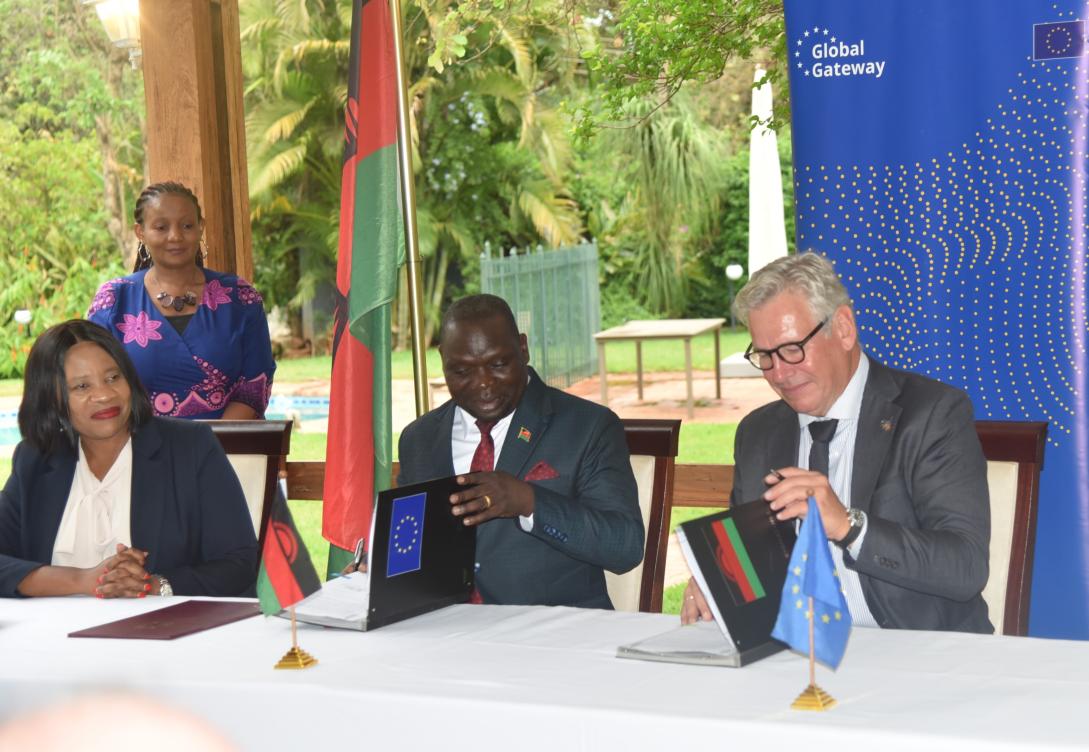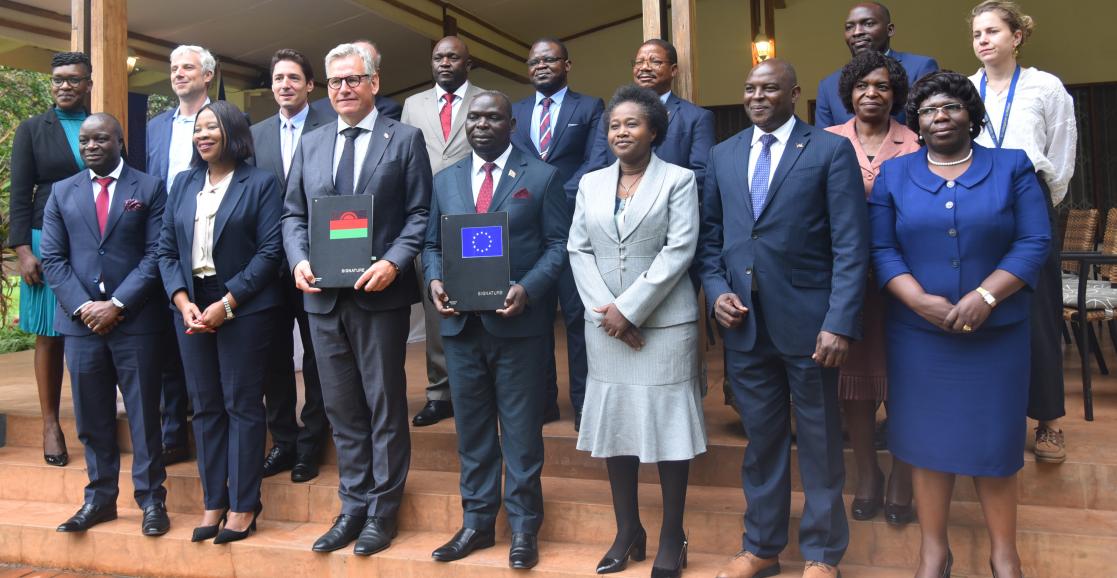Resumption of EU Budget Support to Malawi: A Renewed Partnership for Sustainable Development

With a total value of EUR 55 million, of which EUR 50 million is allocated as direct budget support over a 30-month period, the programme aims to enhance efficiency, effectiveness, and quality in the delivery of secondary education services by combining support for sector-specific processes with the strengthening of the overarching Public Financial Management framework. A first disbursement of EUR 20 million is envisaged before the end of the year.
Speaking at the ceremony, which took place in Lilongwe, EU Ambassador Rune Skinnebach said “Today's agreement is a powerful symbol of renewed collaboration and commitment to our shared goals of stability, progress, and inclusive development in Malawi, delivering on EU’s Global Gateway initiative”.
Minister of Finance, Simplex Chithyola Banda hailed the EU for the resumption of the budget support after a 10 year break.

EU in Malawi
This new program aligns with the Government of Malawi’s priorities under Malawi 2063, as well as the European Union’s Global Gateway investment strategy, which aims to support a strong, inclusive, green, and digital transformation in the country, while enhancing living standards and promoting long-term, inclusive growth.
After a decade long hiatus, the resumption of budget support comes with clear expectations and a mutual understanding of accountability. Progress will be closely monitored, ensuring that resources are utilised effectively and transparently, and that it delivers tangible results for the people of Malawi.
Accelerating agreed reforms, and staying on-track with the IMF’s Extended Credit Facility (ECF) programme are not only a condition but a fundamental necessity for ensuring further disbursements, restoring macro-economic stability, and achieving our collective goals.





